The Roaring 20s: Six Young Founders Forging the Future

Trinity Mouzon Wofford, 28
Cofounder and chief executive officer, Golde
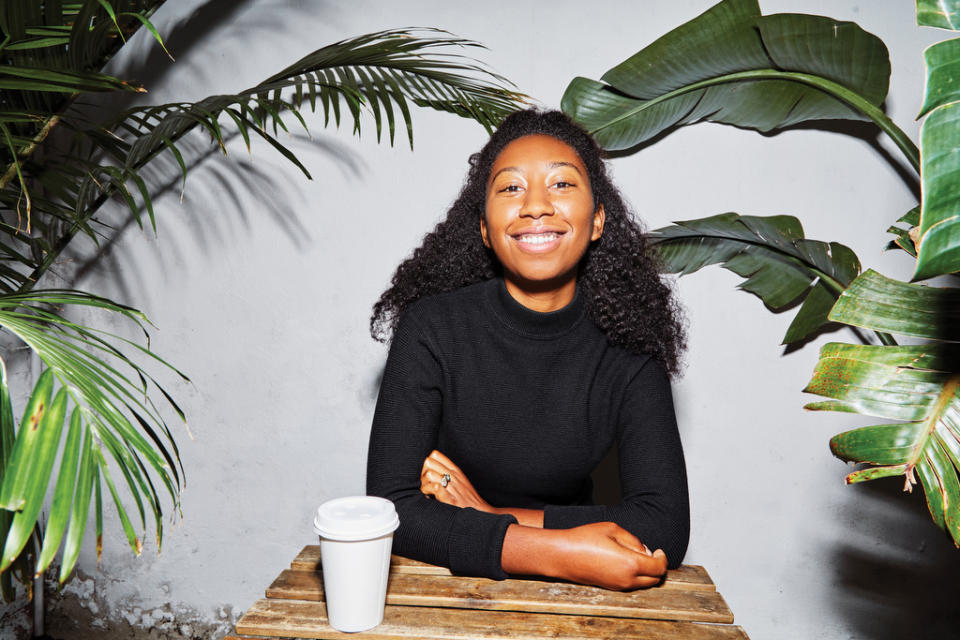
Amy Lombard/WWD
I first got into wellness through my mom. She has a pretty severe autoimmune disease, and when I was a teen, she switched to a holistically minded doctor and saw improvement in her symptoms. It was like night and day. I decided that was going to be my career. Then I found out my mom had to stop seeing the doctor because she couldn’t afford it. That made me pause — I became centered on the idea of how to take wellness and make it more easy, approachable and fun.
More from WWD
The definition of beauty has really shifted in the past few years, which has been exciting for me and Golde. We’re moving toward a truly more democratized vision of beauty that is intricately linked with self care and well-being. It shifts the priority of beauty away from this focus on creating one sense of an ideal, and leans into one that is more individualistic and encourages every person to come as they are and to look and feel like their best self, whatever that means to them.
Personally, that antiquated vision of beauty was never really something that fit with me. I grew up as one of the very few Black women in my town and always felt left out of the conversations around skin care and hair and general aesthetics. A lot of folks feel that way, too. With each generation in this country being more diverse than the last, there is such an interest in the opportunity to let beauty tell the story of many different people.
I was 23 when I started Golde. Starting a brand really young was an asset in that I didn’t really know everything that was ahead of me and I had that sort of naïve confidence that can only come from being young.
I also didn’t have massive expectations. When my partner and I started, our whole idea was to see if we could build the business to be big enough to pay our rent. I wasn’t coming out of the gate thinking about launching in Target stores nationwide or having thousands of followers on Instagram. There wasn’t too much pressure at that time, which I feel fortunate for.
Scaling the business has been fantastic. There have been a lot of learnings, a lot of bumps along the road. It’s been a really unique journey of navigating the growth that has come and positioning what our idea of success looks like for the brand. A lot of it has been a dialogue between ourselves and our community and continuing to push forward where folks want to see more of us.
Beauty, health, nutrition, food — they are intersecting now and are no longer as siloed as they used to be. We’re moving away from calling it the intersection of beauty and nutrition. We’re thinking about it in the new context of what beauty is going to look like for the next decade and beyond. People are considering their supplement routine, their fitness routine, their face care, all part of beauty. The category is evolving in an exciting way.
Taylor Frankel, 25
Cofounder and chief brand officer, Nudestix
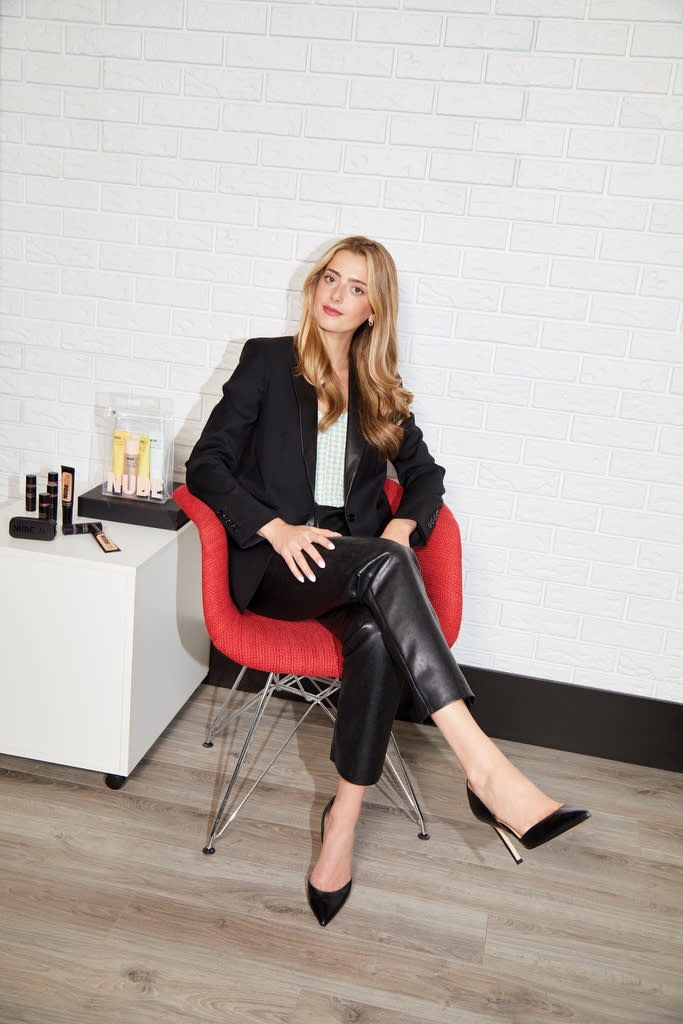
Steph Martyniuk/WWD
It doesn’t feel like I’m a veteran, although it has been eight years since my mother and I started the brand. What is really interesting is how my role has evolved. I started more as a brand ambassador and content creator, handling social media and engaging with retailers and customers. Over the last few years, my role has grown to oversee high level strategy for influencer, press, marketing and brand vision, and having a voice when it comes to a variety of areas of the business.
One big difference is I have the ability now to lead with confidence — not only in my vision and where I see Nudestix going, but also the confidence to really lead a team. I have continuous conversations with my mom about what leadership means. I really like to work alongside my team. Whether at an operational or marketing or store level, every single individual has such an important role in making the business what it is. Transparency is so important, as well, to make sure everyone feels like they have a larger stake in the business and we are all working together toward a larger goal. The more everyone understands all aspects of the business, the better they can do their role.
There were times early on, when I was 18 or 19 and all my friends were in university and partying and traveling and having summers off, that one side of me felt like I was missing out on an important time in my life. There were many conversations I had with my mom — is this what I want? Do I want to continue working to grow the brand? I came to understand I can definitely get those years back in other ways, but this opportunity will never come again.
Looking back, I made the right decision. I’ve traveled and met customers all over the world. Getting up on stage and speaking to hundreds of customers and executives has given me self-confidence. Those opportunities were so valuable in hindsight.
When we first launched, the concept of less is more and no makeup-makeup was extremely disruptive and differentiated. In 2014, all you heard was artistry and more coverage. Over the last eight years, we have educated consumers and retailers and told our story over and over again. Over the past year or two, our white space has gotten a little smaller as more brands talk about minimalist makeup and less is more. On the one hand, it’s easier to “sell” our philosophy, but it’s also a lot more competitive.
If you had asked me a few years ago where I see myself in 10 years, I would really have had no idea. Now, I hope to stay in the beauty industry and start another brand and continue to create products that solve the modern day woman’s problems. I love the conceptual part of brand building, and want to continue, whether building my own brand or consulting and helping other female entrepreneurs start their own.
Carson Meyer, 27
Founder, C and the Moon
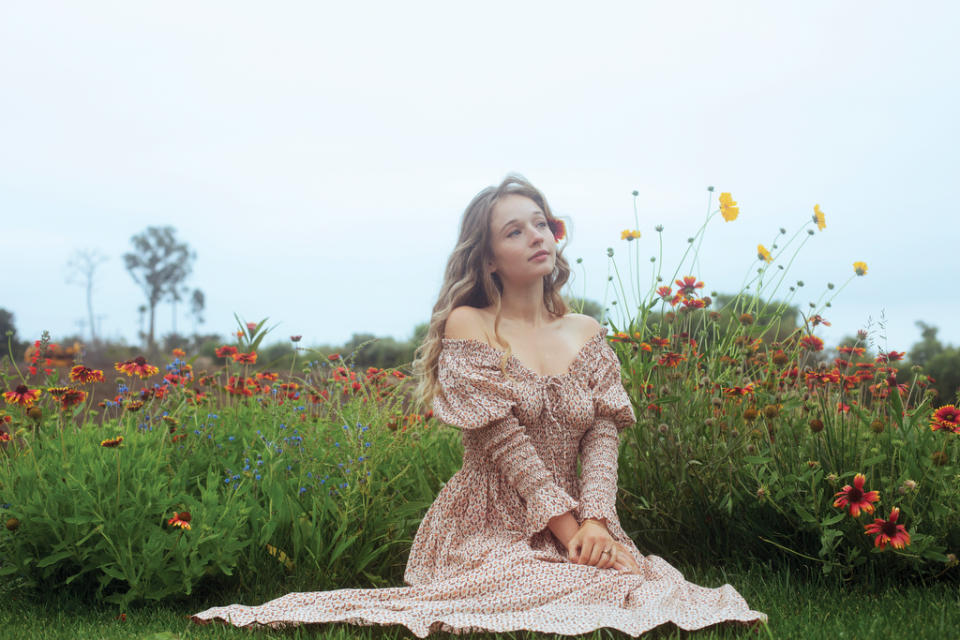
Maddie Cordoba/WWD
My mom worked with the NRDC [Natural Resources Defense Council] for 25 years and through that, she learned a lot about environmental toxins, specifically in skin care products. I grew up way before clean beauty was a topic of conversation. In fact, the only time I was ever grounded was when I painted my nails.
Because of that, we made a lot of our own products in my kitchen, including a body scrub that literally included things in the pantry — brown sugar, coconut oil, almond oil. It was my go-to product, my gift for friends and family, and when I moved to New York for college after leaving L.A., my friends and family would make me ship it back to them in bulk.
About three years ago, after enough people saying this is a great product and we can’t live without it, I stopped making it out of my kitchen and launched the brand.
I was just graduating from college and thought I would pursue acting. But I ended up moving back home to L.A. and saw the documentary, The Business of Being Born, and that same week I met a midwife and was so taken by her work and what she did for a living, that I took my doula training and I still do work as a doula full time.
C and the Moon has always been about less is more. I want to be mindful of the environmental impact of creating things. For me, the vision is minimal products, the basics that we need, and also products that are about inner nurturing and inspiring holistic health in an individual.
Something I’ve always loved about beauty is knowing it is a female-run industry. I love things by women and for women. I am especially very passionate about clean beauty. Our slogan is, “The way we care for ourselves has a direct impact on how we care for the planet.” We can’t buy our way out of the crisis we are in. There is no scrub or oil that is going to make us healthier from the outside in. We are one ecosystem. I see beauty in nature and in what we already are. I love brands and products that aren’t trying to change us. Instead of introducing harmful chemicals or wasteful packaging and messaging that can be harmful, I’m more interested in the regenerative mindset of supporting and nourishing and bringing more life to the table.
So many brands are doing such amazing work, and it is hard. It’s not easy to do better, because we have a system that is set up a certain way. But it excites me to see how people are making an effort and talking about ways to be more conscious about ingredients and packaging and messaging.
Asia Grant, 26
Founder and creative director, Redoux
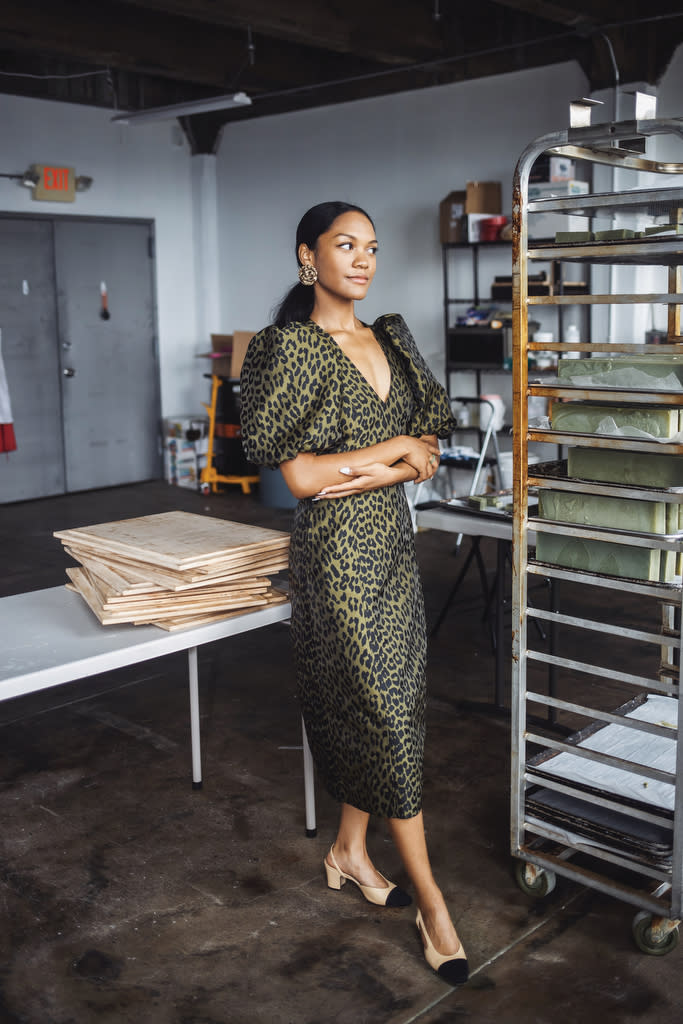
Phobymo/WWD
I moved to New York City after college to work at IBM as a UX [user experience] designer, and that’s where I developed my understanding of storytelling and looking at a product as something that people choose to use. I became very interested in why people buy — why they choose one thing over another. I was getting bored with my corporate job and my partner and I decided to start a side project together. Skin care is a shared passion of ours and completely removed from what we were doing — that’s how we got to beauty.
We are both romantics, and when we were thinking about our point of differentiation, we realized there weren’t any products talking about the impact of scent as it relates to the product itself. We strive to create a scent experience inspired by nostalgia and showing how we are all connected.
Through this process, I found out I have a condition called synesthesia — I hear, taste and smell in color, which I didn’t know wasn’t a common experience. I’m not formally trained as a perfumer, but my creative process comes from other forms of inspiration. The way we approach developing a scent — I will curate a playlist that sounds like the color and collect imagery that relates to the emotion. The visual and audible help me develop a scent that captures the experiences that I am experiencing.
In October 2020, I quit my job to work on Redoux full time. We’ve bootstrapped the entire business ourselves. Last year, after the murder of George Floyd by a Minneapolis police officer, we gained traction as there was a push to support Black-owned businesses. We went from a handful of orders every week to 50 or more a day. We also won a Glossier grant. The most helpful thing has been access to knowledge. Even if you have a lot of grit and common sense, there’s a lot of stuff that you don’t know you don’t know.
Distribution-wise, we are in The RealReal and Goop, and some design and concept stores. We’re not looking horizontally at beauty but rather, how can we align ourselves more with customer values and lifestyles.
In terms of the future, our core is understanding the things that connect us as individuals. The last year has been hard. There is a lot of tension in the world about what makes people different, and with Redoux, I’m trying to focus on the things that bring us together, on what makes people feel close and similar. You know what it feels like to struggle. I know what it feels like to struggle. You know what it feels like to be happy. I do, too. My goal is create opportunities for people to come together and build closeness and recognize that none of us are different.
Shai Eisenman, 29
Founder and CEO, Bubble Skin Care
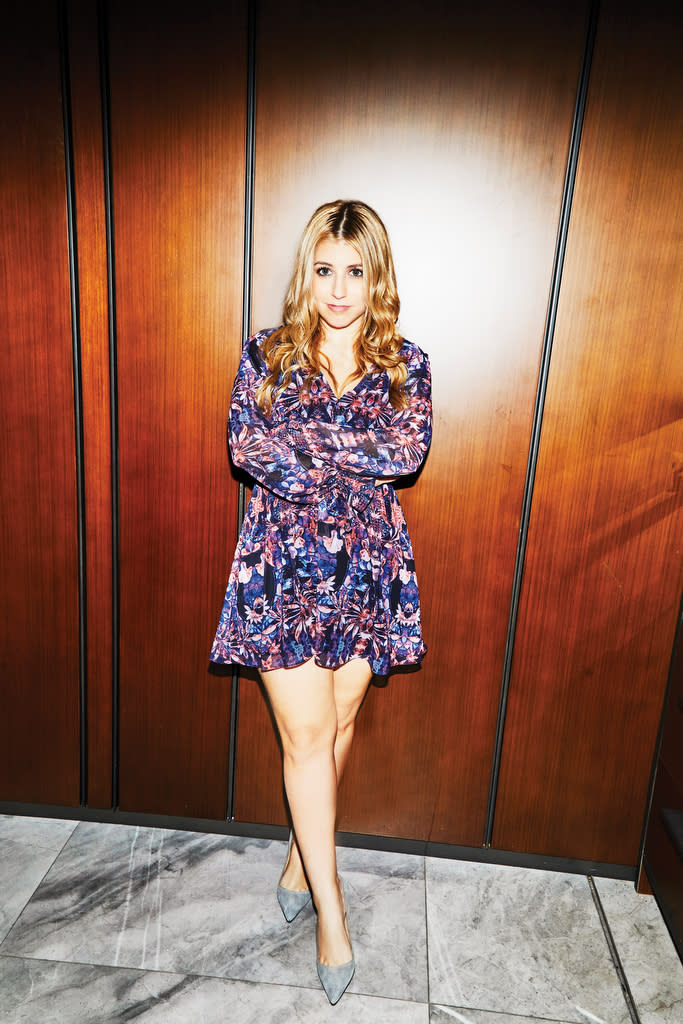
Amy Lombard/WWD
I started my bachelor’s at 15 and was running a tech business with about 100 employees in London when I was 21. My passion was always to create emotionally driven brands. Beauty felt like an amazing industry to create an emotional connection with consumers. I spent a long time reviewing the industry and seeing what was missing. I was shocked when I looked into the teen space that even though teens are the most advanced generation, they’re still using the same brands I used and my mom used.
I wanted to create something that is truly made for them. Gen Z are so diff from other generations. They’re most authentic generation out there. If you look at a Gen Z’s feed on social media, it will look very different from the perfectly curated feed of a Millennial. They’re also so much more conscious about everything — the environment, values, inclusivity. They have a cut-the-BS approach — everything needs to be real, authentic, transparent. But emotionally, they’re still teens, which also has implications — sometimes they see the world in a very black or white way. That’s why transparency and honesty and being real to our community is important.
Bubble launched in November. We got brand awareness to more than 30 percent within three months. Still, accessibility is a big guiding factor for teens. When you talk to a consumer who doesn’t have a credit card, who prefers to use cash, who needs their parents to make a purchase, staying d-to-c was not an option. We decided to partner with Walmart. Now we’re in nearly 4,000 doors.
This is my second start-up. I feel like you make all your mistakes on the first one. There isn’t a single person out there who would say fundraising is a fun experience. It was definitely a challenge. I’m an immigrant, born and raised in Israel. It was really challenging to come to New York. It took a lot of LinkedIn and cold emails, trying to get from one person to another to another, to get to a point that someone agreed to meet and support us and be a part of it. Now I’m very grateful for the fact that I had the courage to send all of these emails and understand that out of 100 emails, most will not be answered, but the two that do will be part of the journey and a big part of the process.
I’m a single founder. A lot of investors are constantly looking for the “adult” in the room, the one who will be the decision maker. It took some time to break that perspective. I’m the adult in the room and it’s OK. It’s under control. At a certain point, you get to utilize your youth for certain things. It’s easier to be more direct, because it’s not going to come across as aggressive. It’s learning how to get people to break the barrier — yeah, you might think of me as a kid, but I am actually doing what I am supposed to.
Olamide Olowe, 24
Founder and CEO, Topicals
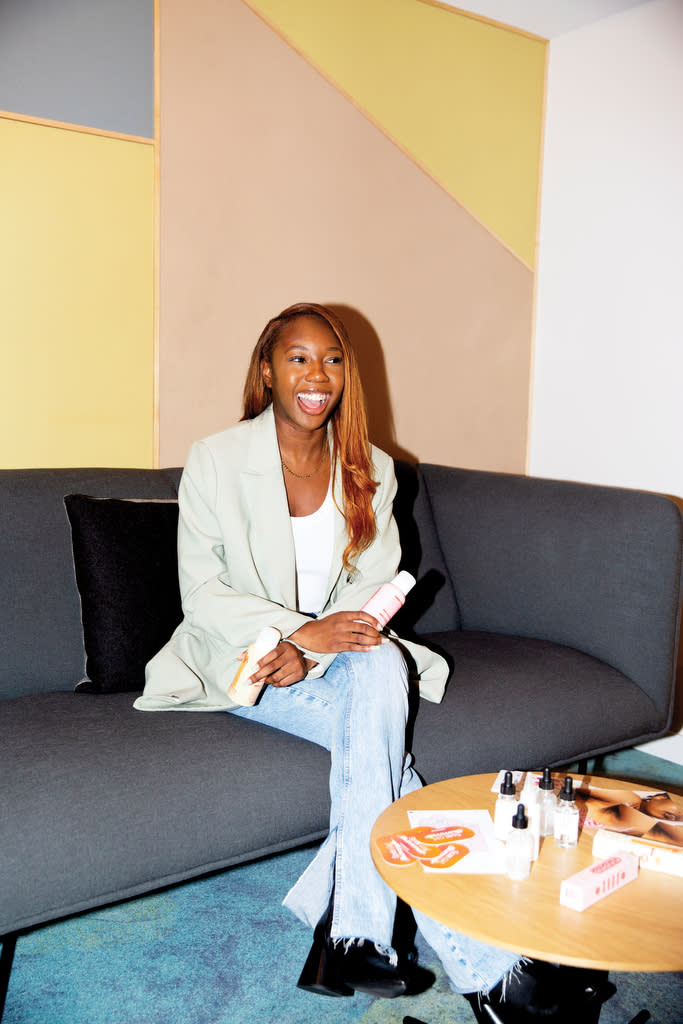
Maddie Cordoba/WWD
I grew up with a ton of chronic skin conditions, and I always felt like an outsider in beauty because I shopped in the ointment aisle and everyone else shopped in the skin care aisle. I went to UCLA running track on full scholarship and wanted to become a dermatologist, but being an athlete and pre-med student was nearly impossible. I wored at Shea Moisture during undergrad and built a teen skin care brand called Shea Girl. Shea Moisture’s ethos of community commerce really inspired me to look at business in a community-centric way. I wanted to bring that ethos to skin care, particularly around people with chronic conditions, who are two to six times more likely to have mental health issues because of the way their skin presents. Topicals is birthed from that personal experience.
Early on, I faced a lot of challenges. Often when investors hear beauty, they roll their eyes, think superficial category, way too many products. I heard that a lot. People asked “How are you going to make chronic skin conditions cool? Why would anyone want to follow a brand showing full-blown acne and eczema? They’re not going to believe this product works.” I had to do a lot of reprogramming on what people thought beauty was.
It was really difficult. The big thing that helped me push through was the fact that I had a unique insight. I really do understand this consumer and their needs because I am the consumer. There is a big gap in the product experience when you have a chronic skin condition. The beauty skin care aisle has a ton of products and it’s difficult to be differentiated. But when I looked at the ointment aisle, I was still looking at the brands that my parents used.
After two years of really hard work and pitching and pitching, I was able to secure investment. It was a long two years, but I’m thankful for them because without them, I really wouldn’t have fire tested the brand and honed the details of what makes it so different.
I’m very fortunate that my parents supported me in the beginning. My dad is an entrepreneur, so he understood, but my mom was nervous about taking the leap. People have to recognize the privilege it takes to start a brand. In the future, I’d love to give back to people in that time period, where you want to launch an idea, but you don’t have the capital to just survive. A lot of Black people have an idea and will be able to eventually raise capital, but there is an in-between period of opportunity cost, and not everyone has the same privilege and I hope to give back.
I’ve been thinking a lot about what it’s been like to build a brand in the middle of a pandemic. As a former athlete, I can shut down my feelings of being uncomfortable to be successful, but it will be interesting to look back at this period. I’m extremely proud of my team, because I couldn’t do this without them. Supply chain is difficult, growing and hiring is difficult. You have to make decisions on the fly and that’s hard. But on the upside, I’m so happy this message resonates, because so many people told me it didn’t make sense. I’m happy I listened to the voice inside me and am excited to further explore the connection between skin health and mental health. If you think about Maslow’s Hierarchy of Needs, esteem is an important part of self actualization— the sense of self and beauty are deeply connected.
It’s not about products or looking one specific way. It’s about being your most authentic self. Beauty is the freedom to be yourself.
Sign up for WWD's Newsletter. For the latest news, follow us on Twitter, Facebook, and Instagram.

